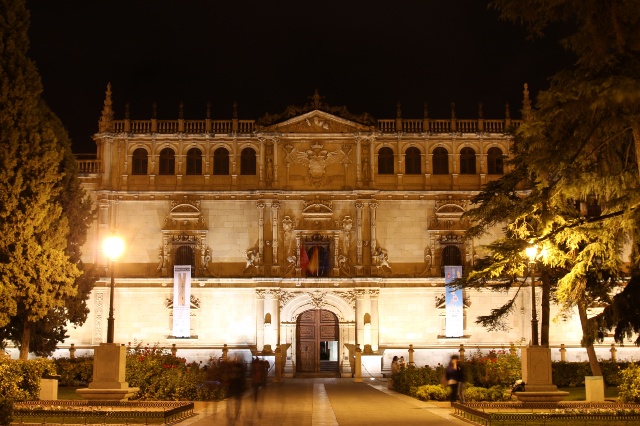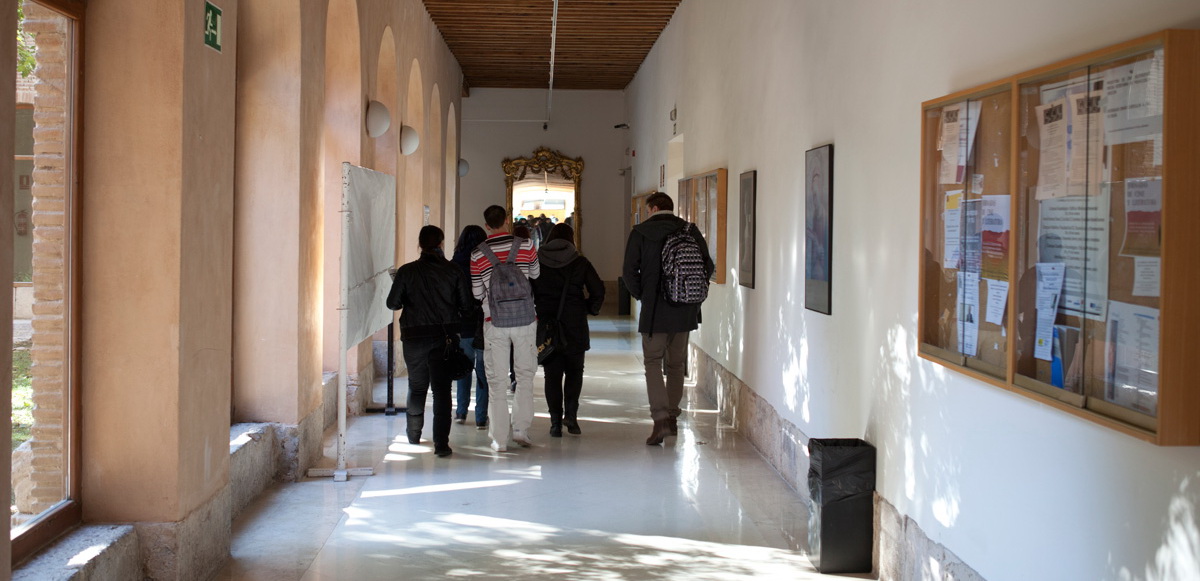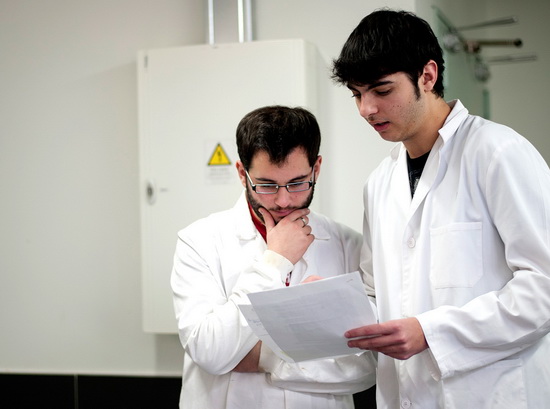
Objectives
The primary objective of the Degree in Audiovisual Communication is to produce professionals capable of providing responses to the demands arising from the emergence of information and communication technologies. These students must acquire a high level of skills in the analysis of communicative phenomena, as well as in writing and oral communication technologies in audiovisual and multimedia contexts, in order to address a constantly evolving strategic environment.
Competences
Students must have basic training related to audiovisual media and their national and international social and economic environments. They must develop a critical and analytical capacity, reflecting on audiovisual processes, considering the image as a means of expressing and communicating concepts, thought and emotions.
They must also be capable of creating, planning, developing and evaluating audiovisual communication actions and approaches, mastering their applications and technologies, with the ability to work as a team and negotiate. They must be able to make decisions and innovate, in order to contribute to professional development and progress, with respect for human rights and democratic values.
In specific terms, students must acquire solid training in the following fields:
Audiovisual projects: development, production, post-production and dissemination.
Preparation, design and production of digital audiovisual works: video editing, sound and image treatment, videogame design.
Management: portal management, content editing, marketing, accounting, copyright.
Analysis and research: past and present communication issues and processes for public and private organisations.
Education: digital literacy and new technologies at all educational levels.
Structure and credits
| TYPE OF SUBJECT | ECTS |
|---|---|
| Basic Training (B) | 60,0 |
| Obligatory (Ob) | 90,0 |
| Optional (Opt) | 60,0 |
| External Practicums (Ob) | 18,0 |
| Final Project (Ob) | 12,0 |
| TOTAL CREDITS | 240,0 |
Student profile
In a constantly changing society, in which audiovisual language has surpassed the frontiers of cinema and television, invading networks and electronic devices, students of this degree should be creative and innovative, interested in social relations and able to work as part of a team.
Professional opportunities and officially regulated professions
The continuous expansion of communication media and new formats bring with them a demand for audiovisual content. Firms are looking for professionals capable of expressing themselves in the new languages. Graduates in Audiovisual Communication from the University of Alcalá will find professional opportunities in various sectors in which audiovisual language is an essential communication tool. This includes companies working in the fields of social communication, technology, culture, education and documentation.
Teaching and researching in new technologies for audiovisual improvement is another alternative.
First academic year taught
Curso 2011/12 PRIMERO
Curso 2012/13 PRIMERO Y SEGUNDO
Curso 2013/14 PRIMERO, SEGUNDO Y TERCERO
Curso 2014/15 PRIMERO, SEGUNDO, TERCERO Y CUARTO
Academic Staff
Information leaflet
More information
- Teaching centre: Faculty of Arts and Humanities
- Official State Bulletin publication date: 12/03/2012
- Places available: 50
- Type of teaching: CLASSROOM
- Language of instruction: SPANISH
- First academic year taught: 2011-12
Subjects, timetables and examinations
Study plan /of adaptation to the degree / Recognition of credits
External practicums
Final Project
International Programmes and Exchanges
Movilidad nacional
Registration
Antes de realizar la matrícula es imprescindible leer la información que figura en el apartado de planificación de la enseñanza y toda la información detallada siguiente:
Regístrate para obtener usuario y contraseña
Protección de datos personales
ACCESO AL PROGRAMA DE AUTOMATRÍCULA





